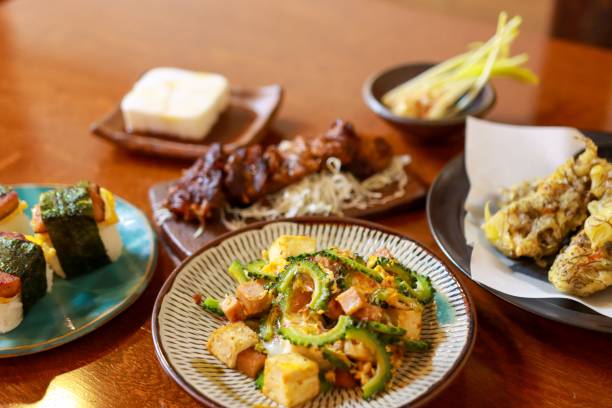Unveiling the Health Secrets of the Okinawan Diet: A Longevity Blueprint from the East
The quest for a long, healthy life is truly a universal desire. While the search for the "Fountain of Youth" continues, there's a place on earth where people actually live considerably longer than most – Okinawa, Japan. Famous for its centenarians, the longevity of Okinawans has been attributed to various factors, one of which is their unique dietary habits. Let's delve into the secrets of the Okinawan diet and its potential health benefits.

The Origins of the Okinawan Diet
The Okinawan diet originated from the traditional dietary customs practiced by the inhabitants of the Ryukyu Islands, including Okinawa, the largest of the islands. Historically, it is characterized by low fat and calorie intake, and high consumption of vegetables, fruits, and fish. The diet is rich in complex carbohydrates derived from sweet potatoes, which have been a staple food in Okinawa for centuries.
The Science Behind the Longevity
Scientists have been intrigued by the health and longevity of Okinawans for years. Several studies suggest that the Okinawan diet may contribute to lower rates of chronic diseases such as heart disease, cancer, and diabetes. A key factor in this is the diet’s high content of antioxidants and anti-inflammatory compounds, derived from the abundant consumption of colorful vegetables and fruits.
The Okinawan Diet Today: A Modern Twist on Tradition
Despite the modern influences, the core principles of the Okinawan diet remain intact. It still emphasizes whole foods, plant-based nutrition, with a focus on sweet potatoes, green leafy vegetables, and soy products. However, today’s diet also incorporates lean proteins like tofu and fish, plus a reduced intake of salt and added sugars.
Evaluating the Okinawan Diet: Pros and Cons
The Okinawan diet holds great promise for promoting longevity and preventing chronic diseases. That being said, it’s not without its challenges. The diet requires a drastic reduction in the consumption of processed foods and meats, which might be difficult for some people. However, its emphasis on fresh, natural foods and mindful eating can have far-reaching health benefits.
Insights into Okinawan Health Practices
- Sweet Potatoes as a Staple: Okinawans traditionally consume a large amount of sweet potatoes, which are rich in fiber, vitamins, and antioxidants.
- Mindful Eating: The practice of “Hara Hachi Bu,” eating until one is 80% full, is a common Okinawan practice that prevents overeating.
- Active Lifestyle: Regular physical activity, often in the form of traditional dances and martial arts, is a key component of Okinawan lifestyle.
- Strong Social Connections: Okinawans maintain close social connections, which contribute to their overall happiness and stress management.
In conclusion, the Okinawan diet and lifestyle provide a holistic approach to health, combining balanced nutrition with mindful eating, regular physical activity, and strong social connections. Although it may be challenging to adopt this lifestyle completely, incorporating some of its principles could be a step towards better health and potentially, a longer life. The secret to longevity, it seems, lies not in a mythical “Fountain of Youth,” but in our everyday choices and habits.






